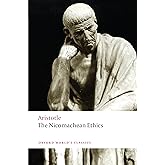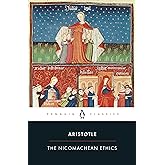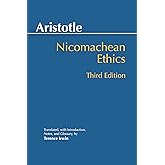
Amazon Prime Free Trial
FREE Delivery is available to Prime members. To join, select "Try Amazon Prime and start saving today with FREE Delivery" below the Add to Cart button and confirm your Prime free trial.
Amazon Prime members enjoy:- Cardmembers earn 5% Back at Amazon.com with a Prime Credit Card.
- Unlimited FREE Prime delivery
- Streaming of thousands of movies and TV shows with limited ads on Prime Video.
- A Kindle book to borrow for free each month - with no due dates
- Listen to over 2 million songs and hundreds of playlists
Important: Your credit card will NOT be charged when you start your free trial or if you cancel during the trial period. If you're happy with Amazon Prime, do nothing. At the end of the free trial, your membership will automatically upgrade to a monthly membership.
Buy new:
-8% $13.81$13.81
Ships from: Amazon.com Sold by: Amazon.com
Save with Used - Good
$8.14$8.14
$3.99 delivery April 24 - 25
Ships from: SuperBookDeals- Sold by: SuperBookDeals-

Download the free Kindle app and start reading Kindle books instantly on your smartphone, tablet, or computer - no Kindle device required.
Read instantly on your browser with Kindle for Web.
Using your mobile phone camera - scan the code below and download the Kindle app.

The Eudemian Ethics (Oxford World's Classics) 1st Edition
Purchase options and add-ons
- ISBN-100199586438
- ISBN-13978-0199586431
- Edition1st
- PublisherOxford University Press
- Publication dateJuly 14, 2011
- LanguageEnglish
- Dimensions7.6 x 5.1 x 0.7 inches
- Print length195 pages
There is a newer edition of this item:
$25.99
(1)
Only 5 left in stock (more on the way).
From #1 New York Times bestselling author Colleen Hoover comes a novel that explores life after tragedy and the enduring spirit of love. | Learn more
Frequently bought together

Customers who viewed this item also viewed
From the Publisher


Editorial Reviews
Review
Book Description
About the Author
Product details
- Publisher : Oxford University Press; 1st edition (July 14, 2011)
- Language : English
- Paperback : 195 pages
- ISBN-10 : 0199586438
- ISBN-13 : 978-0199586431
- Item Weight : 2.31 pounds
- Dimensions : 7.6 x 5.1 x 0.7 inches
- Best Sellers Rank: #317,053 in Books (See Top 100 in Books)
- #300 in Ancient Greek History (Books)
- #623 in Ancient Greek & Roman Philosophy
- #1,037 in Philosophy of Ethics & Morality
- Customer Reviews:
About the author

Aristotle (/ˈærɪˌstɒtəl/; Greek: Ἀριστοτέλης [aristotélɛːs], Aristotélēs; 384–322 BC) was a Greek philosopher and scientist born in the city of Stagira, Chalkidice, on the northern periphery of Classical Greece. His father, Nicomachus, died when Aristotle was a child, whereafter Proxenus of Atarneus became his guardian. At eighteen, he joined Plato's Academy in Athens and remained there until the age of thirty-seven (c. 347 BC). His writings cover many subjects – including physics, biology, zoology, metaphysics, logic, ethics, aesthetics, poetry, theater, music, rhetoric, linguistics, politics and government – and constitute the first comprehensive system of Western philosophy. Shortly after Plato died, Aristotle left Athens and, at the request of Philip of Macedon, tutored Alexander the Great starting from 343 BC. According to the Encyclopædia Britannica, "Aristotle was the first genuine scientist in history ... [and] every scientist is in his debt."
Teaching Alexander the Great gave Aristotle many opportunities and an abundance of supplies. He established a library in the Lyceum which aided in the production of many of his hundreds of books. The fact that Aristotle was a pupil of Plato contributed to his former views of Platonism, but, following Plato's death, Aristotle immersed himself in empirical studies and shifted from Platonism to empiricism. He believed all peoples' concepts and all of their knowledge was ultimately based on perception. Aristotle's views on natural sciences represent the groundwork underlying many of his works.
Aristotle's views on physical science profoundly shaped medieval scholarship. Their influence extended into the Renaissance and were not replaced systematically until the Enlightenment and theories such as classical mechanics. Some of Aristotle's zoological observations, such as on the hectocotyl (reproductive) arm of the octopus, were not confirmed or refuted until the 19th century. His works contain the earliest known formal study of logic, which was incorporated in the late 19th century into modern formal logic.
In metaphysics, Aristotelianism profoundly influenced Judeo-Islamic philosophical and theological thought during the Middle Ages and continues to influence Christian theology, especially the scholastic tradition of the Catholic Church. Aristotle was well known among medieval Muslim intellectuals and revered as "The First Teacher" (Arabic: المعلم الأول).
His ethics, though always influential, gained renewed interest with the modern advent of virtue ethics. All aspects of Aristotle's philosophy continue to be the object of active academic study today. Though Aristotle wrote many elegant treatises and dialogues – Cicero described his literary style as "a river of gold" – it is thought that only around a third of his original output has survived.
Bio from Wikipedia, the free encyclopedia. Photo by Copy of Lysippus (Jastrow (2006)) [Public domain], via Wikimedia Commons.
Customer reviews
Customer Reviews, including Product Star Ratings help customers to learn more about the product and decide whether it is the right product for them.
To calculate the overall star rating and percentage breakdown by star, we don’t use a simple average. Instead, our system considers things like how recent a review is and if the reviewer bought the item on Amazon. It also analyzed reviews to verify trustworthiness.
Learn more how customers reviews work on AmazonTop reviews from the United States
There was a problem filtering reviews. Please reload the page.
- Reviewed in the United States on November 21, 2024I enjoyed Eudemian Ethics. And I had wondered if Magna Moralia and Nichomachian Ethics would be replicas of the same format. While they do follow the same format they differ in material and if your hope is to know more about Aristotle’s justice and concept of agency this is a great book. The chapter on justice is replicated by N.E. but there seems to be a couple mentions of monetary situations in the section on friendship that offers another account of types of justice between different types of people. I also enjoyed certain dialogues on happiness to be unique to this book and many of the proofs and explanations were more simple and less wordy than N.E. For the most part this work is more related to N.E. than Magna Moralia but you should read all three.
- Reviewed in the United States on May 16, 2015I have had Aristotle's Nichomachean Ethics on my reading list for some time and was unaware of the Eudemian Ethics until reading Alasdair MacIntyre's excellent and contemporary treatise on ethics "After Virtue", where MacIntyre promotes the lesser known Eudemian Ethics. Having read samples from Thomas Aquinas massive production (Aquinas was an excellent interpreter of Aristotle) and contemporary productions on ethics such as MacIntyre, which gives frequent references to both Thomas Aquinas and Aristotle, I embarked upon the texts of Aristotle - The Eudemian Ethics.
The book contains timeless ideas and insights into human nature, what is to be considered proper conduct, and discusses virtue at length. A particular aspect of the Aristotlean ethics is its concept of the golden mean - virtue lies between two extremes, something that is elaborated on in detail in the book. The book is rich in wise concepts and frameworks that serve as the underpining of Aristotlean ethics. A few concepts that I will return to are the three lives of a person - the life of the philosopher, the life of the politician, and the life of the hedonist; moral virtues and intellectual virtues; and nobility as a designation of a fully virtuous person.
I choose this Kindle version due to the affordable price and the positive reviews by other reviewers. The edition didn't disappoint. An advice to prospective readers of the Kindle edition: make use of star-marked references to the end section where Kenny has supplied helpful notes. Kenny is very knowledgeable on Aristotle and to read his considerations offers additional insights into the underlying text.
I strongly recommend anyone to read this book - a book of timeless wisdom that helps to develop your perspective on morality, virtue and what is meant to live a life of happiness.
- Reviewed in the United States on May 29, 2016Please note which version you're getting: I was searching for the Anthony Kenny translation of Eudemian Ethics, which I found, but when I clicked on the Kindle link from that product information page, it took me to this Aeterna Press edition which is translated by J. Solomon. I wanted the Kenny translation and didn't realize this Kindle version was different before I bought it (although since it was only $0.99 I'm not going to lose sleep over this.) I'm giving this 3 stars for the incorrect product information--I haven't read the book yet.
- Reviewed in the United States on December 9, 2014After all these years, this is my first read of the Eudemian Ethics. The introduction is excellent, placing the text in philological and historical context. Very, very pleased with its readablitity and scholarship. An excellent companion read to the better known and more widely read, Nicomachean Ethics and Politics.
- Reviewed in the United States on April 17, 2015Item was as described. Shipped fast!
- Reviewed in the United States on November 16, 2016This is a good translation of the Eudemian Ethics by Anthony Kenny. Aristotle's Nicomachean Ethics has also been translated in this series: The Nicomachean Ethics (Oxford World's Classics). The Eudemian Ethics is not a handbook for living. It is a philosophical explanation of the big concepts like virtue, choice, freedom and justice that are used when talking about life.
The Eudemian Ethics (and I imagine the Nicomachean Ethics) is a good example of how Aristotle does philosophy. He starts with the statement that happiness may be caused by five things: nature like one's height, learning like knowing mathematics, habituation, divine inspiration, and fortune. It is typical that Aristotle then says that all changes in general are caused by one or more of these sources. In I.8 there is a discussion of Plato's theory of forms. In II.7 Aristotle explains what it means to say that an action is voluntary and what does it mean for someone to will something. In II.8, what does it mean for an action to be forced, this applying both to throwing objects and humans acting under force. Book IV is about justice. Aristotle distinguishes here distributive justice and rectificatory justice.
Top reviews from other countries
 Mykola LatanskyReviewed in the United Kingdom on April 19, 2024
Mykola LatanskyReviewed in the United Kingdom on April 19, 20245.0 out of 5 stars Aristotle’s delineation of the soul into four parts was particularly striking
As part of my philosophy curriculum at the University of Oxford, I read Aristotle’s Eudemian Ethics. Unlike my prior engagements with ancient texts, which often felt dense and challenging, I found Aristotle's exposition in the Eudemian Ethics more accessible, although still complex in its ideas.
Aristotle’s delineation of the soul into four parts was particularly striking, a concept that diverges interestingly from the more familiar tripartite model discussed in other works. This aspect piqued my curiosity and enriched my understanding of Aristotelian moral psychology, offering a fresh perspective on his ethical considerations.
 SisyphusReviewed in the United Kingdom on December 31, 2016
SisyphusReviewed in the United Kingdom on December 31, 20161.0 out of 5 stars Aristotle's works on ethics make dry reading at the best of times
Aristotle's works on ethics make dry reading at the best of times. This uninspired translation makes it hard to get past page 1. I ended up buying the paperback in the Oxford World's Classics series (Trans A Kenny) - much, much better














